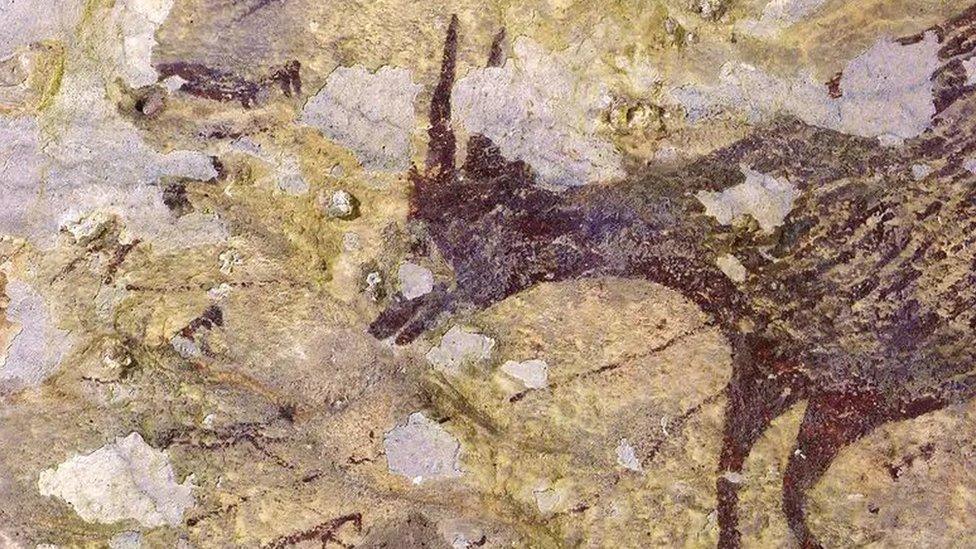This cave painting could be the oldest artwork of its kind
- Published

Scientists think that this cave painting discovered in Indonesia may be the earliest evidence of storytelling through artwork ever found!
Calculations show that the images are at least 43,900 years old, which means that humans were drawing scenes like this tens of thousands of years earlier than previously thought.
It was discovered in a limestone cave in Sulawesi in Indonesia by scientist Maxime Aubert from Griffith University in Australia.
But no one is quite sure who painted the scene, which shows people hunting anoa, a species of water buffalo found only on Sulawesi, with spears and ropes.
Study author Adam Brumm, an archaeologist at Griffith University, first saw the artwork as blurry photos in a messaging app, but even the low quality images were good enough for him. "I was just screaming with excitement when these images ended up in my phone," he said.
Until this discovery, the oldest known artworks depicting visual "stories", with humans and animals interacting in a recognisable scene, was the famous Lascaux paintings in France. They dated from around 20,000 years ago.
Finding out exactly how old this 4.5-metre-wide painting is was done by measuring the levels of uranium in the mineral deposits that have slowly grown on top of the images over time.
Scientists can detect decaying elements in these deposits - which are nicknamed "cave popcorn" - to work out when they started to form.
Who could the figures in the painting be?
Although they appear human, their finder also describes them as having animal characteristics. Aubert says: "They are half human, half animal. If you look closely, one has a tail and another seems to have a bird head."
It's thought that this scene escaped attention for so long because it was in a raised alcove about 60 feet above ground level.
But the scientists are hopeful there are even more exciting discoveries to be uncovered here in the future.
- Published25 April 2015
- Published9 October 2014
- Published31 August 2011
